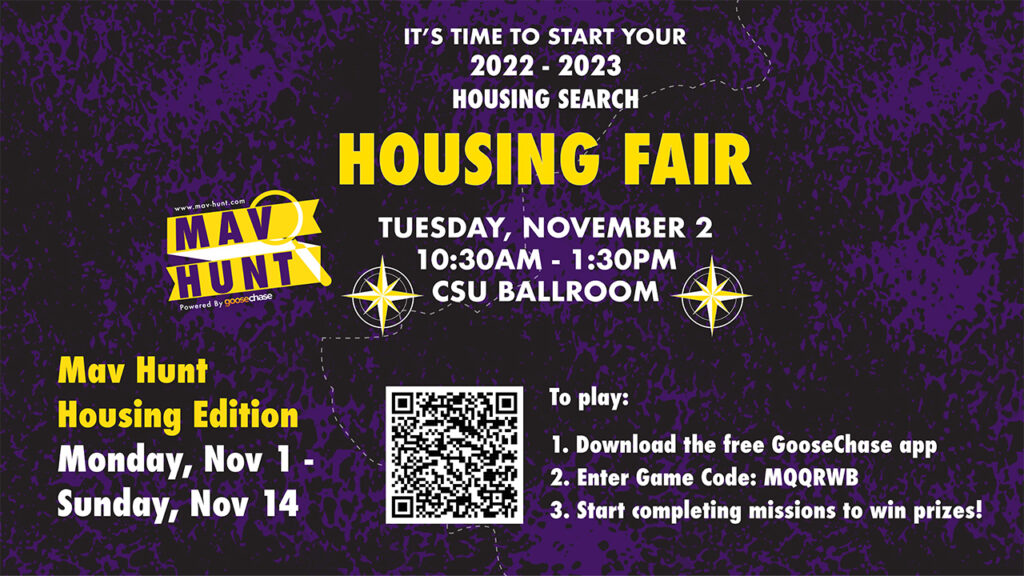By JOHN BULCOCK, Assistant Director of Greek Life & Off-Campus Housing

Moving away from home and living on campus is a big step. Now, many students will choose to take another big step – living off-campus.
At Minnesota State University, Mankato, more than 90 percent of first-year students live in on-campus housing. A significant number of those students choose to live off-campus during their second and subsequent years, in privately owned and managed houses or apartment complexes.
While this can be an exciting time for students, it can also be a time during which both students and parents have questions about leasing and renting.
By when should students decide where they are going to live next year?
This is a great question, and the answer depends on how confident a student is that they have found the right arrangement. Most landlords start offering lease renewals in mid-to-late-October or early November, and they begin taking new leases for the following academic year at about the same time, or just shortly thereafter. Please note that there is not a shortage of off-campus housing for MSU students. There are, however, some factors that lead to certain properties reaching leasing capacity before others. That being said, it is recommended that students make a decision about where to live during the next academic year by mid-March. By April, we usually start hearing about some properties that may be full or near-full for the next year. An exception to the March recommendation would be for students who are not sure as to whether or not they will be returning to the university. Students signing residence hall contracts have those cancelled if they are not enrolling at the university. This is not the case for students who sign leases with private property managers.
Know what you’re looking for.
Where you live has a great impact on your success as a student and your overall well-being. Know what you need in a place and what is important. Make a list, and try to find places that meet your needs. Things to think about include:
- How close is the property to campus, and does the bus stop nearby?
- Is there laundry on-site or in the unit?
- What is the environment like? If you’re a quiet and studious person who doesn’t do well with distractions or rowdiness, there may be some properties that may be better for you than others.
- Is there a place to park your vehicle if you have one? Many residential neighborhoods limit the number of vehicles per house that are able to park on-street.
Don’t sign a lease until you’re ready.
Leases are legally binding agreements. Once you sign one, you’re obligated to its terms. Just because leasing for the next year starts in October or November, that doesn’t mean you have to sign right away. None of the off-campus housing providers in the area require that you be a student in order to live there, so it doesn’t matter to them whether or not you’re taking classes at MSU. We suggest that you have a good idea of where you’re going to live by mid-to-late-March, but, if you’re not confident that you’re going to be returning to the university for the following year, don’t sign. If you do sign, you’re agreeing to pay rent. If you can’t find someone to take over your lease, you get to pay for it, whether or not you’re there. Ask anyone who has tried to find a subleaser, or look at the number of students on MavLife who are trying to find people to take over their leases. Although some find success, it’s oftentimes less than half who do-especially if they’re trying to find someone after the majority of people have already figured out where they’re living.
Does anyone offer a lease that is less than 12 months?
Most leases in town are 11 ½ -12 months, and, although they can, property managers do not have to make exceptions for graduates, those studying abroad, or those who plan to return home for the summer months. Occasionally, students may be allowed to get out of a lease if they find someone to take over the terms. Going in and asking to get out of your lease without someone to take your place increases the likelihood that you won’t be let out of the lease. Check with your landlord about the possibility of finding a subleaser, and start that search early!
Get to know the people you’re going to live with, and have “awkward conversations” early.
I help mediate roommate conflicts every year. The biggest issues roommates fight over are financial matters, cleanliness, substance use, use of each other’s’ stuff/groceries, and guests. Talk about these things before they become problems.
If you have a friend or potential roommate who doesn’t manage their personal finances well, what makes you think they’ll pay their part of the rent or utility bills on time? If they don’t, you may get stuck with it. Money is tight for many college students, and I’ve seen too many roommate issues caused by financial mismanagement. If you’re on a group lease, a roommate’s inability to pay rent could lead to your eviction. If utility bills don’t get paid, they can get shut off!
If you’ve seen the disaster area that is your friend’s bedroom, what makes you think they’ll treat the apartment with respect? Dishes don’t do themselves, and there’s no magic wand for cleaning the bathroom. Talk about how long it’s ok for dishes to sit out. What level of clutter in the living room is ok? Many times, I’ve helped roommates develop a good ol’ fashioned chore chart to stick to the refrigerator door.
Does your friend smoke cigarettes or marijuana? Does your potential roommate drink too much and make poor or destructive choices when they do so? Smoker’s smells permeate clothing and can make your stuff smell, too. Since marijuana is still illegal, many users choose to smoke inside. Are you ok with that? Depending on your major or future career path, you may not be in a position to be able to deal with the consequences that come with being in a housing situation that could result in citations. Don’t put yourself in a situation that you’re not ok with, or let your roommate know what you are ok with.
If you share a common space and electronics (tvs, video game systems, furniture, etc.) talk about what shared usage of these things looks like. If I technically own the tv in the living room and don’t like the show you’re in the middle of watching, do I get to change the channel? If you have a stash of frozen pizzas in the freezer, and if I come home after a late night out, is it ok for me to get into your pizzas? Be sure to talk about each other’s limits, and have an agreement about what’s ok and what isn’t.
Do you or your roommate have a significant other who is likely to spend considerable time visiting or staying over? If so, talk to the roommate about the extent to which other “part-time roommates” are welcome. Sometimes, you just need your space, and other people who take up couch space, get your bathroom dirty, or feel like they can raid your fridge and cabinets aren’t ok. Make sure you’re on the same page as your actual roommate who has a right to be in the space.
I’m not going to tell you the “right solutions” to any of these issues. I’ll tell you that they’re the most common things that land people in my office asking for help in figuring out how things can be made liveable again. Talk to your roomies about them ahead of time.
Living off-campus is an exciting journey. Going into it with clear expectations can be very helpful. Plan head, know what you want, and get to know the potential roommates before you make decisions that could be difficult to get out of.
For more info or resources pertaining to off-campus housing, please visit our website, https://mankato.mnsu.edu/university-life/housing/off-campus-housing/.
Can students receive and use financial aid to pay for off-campus housing?
Yes, they can. The cost of attendance calculated for students by the university includes the cost of living, whether a student lives on or off campus. If a student completes the FAFSA and the financial aid application, the university’s financial aid office will try to help a student acquire the financial resources needed, beyond the expected family contribution, to meet the cost of attendance via scholarships, loans, and grants. If a student lives on campus, the university will use the student’s financial aid balance, after tuition is paid, to pay down the balance on the student’s housing bill. This is where the biggest difference, in terms of financial management, occurs for students living off campus. If a student, who is living off-campus, has a financial aid balance after tuition is paid, that money is paid directly to the student via direct deposit to a bank account. Students living off campus are responsible for making sure their rent is paid. They will need to pay the property manager or landlord, directly. When initially signing a lease, many properties require a security deposit equal to one month’s rent. Students need to be able to pay this up front, and they also need to be prepared to pay any rent due before financial aid disbursement. Private landlords generally do not wait for financial aid to come in.
These questions and answers are only some of those we get from students and parents of students who are experiencing the off-campus transition. For answers to other questions and for other off-campus housing resources, please visit our website, https://mankato.mnsu.edu/university-life/housing/off-campus-housing/.

